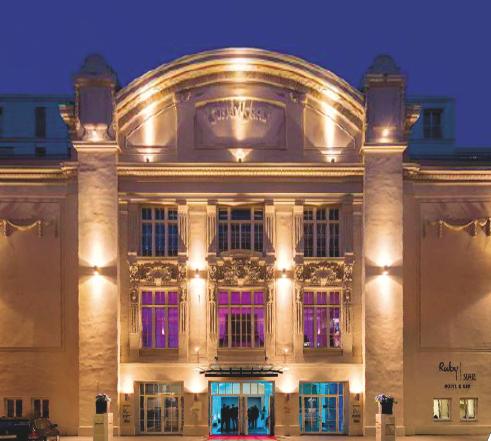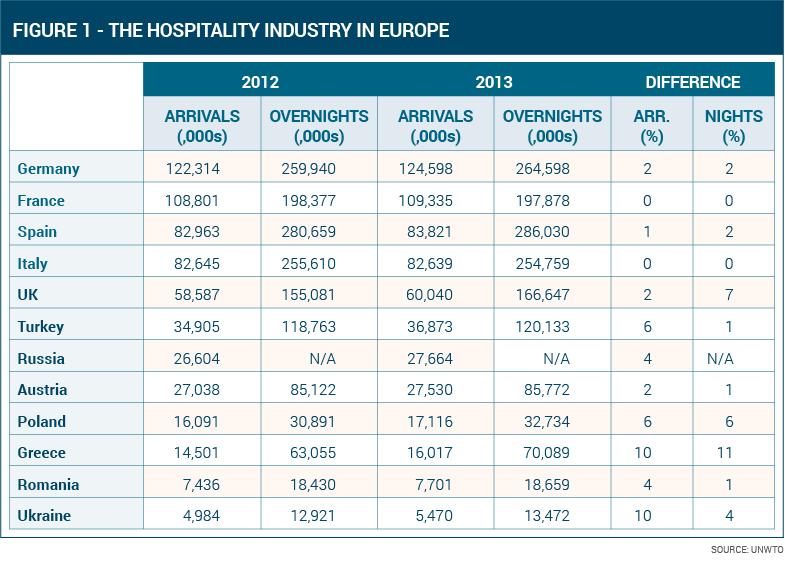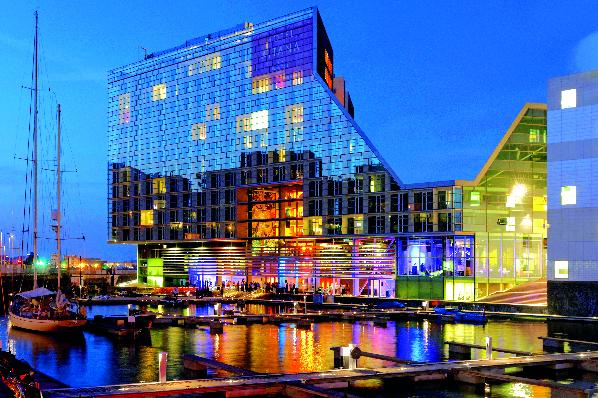According to UNWTO, Europe led growth in absolute terms (+29 million arrivals in 2013), reaching 563 million arrivals. Growth exceeded the forecast for 2013 (+5%) and is double the region’s average for 2005-2012 (+2.5% per year). In light of the conflicts in Eastern Ukraine and Syria, Eastern Europe might continue to be negatively affected in 2015.
Appealing to hotel operators
STR Global reports that hotels in Europe achieved a RevPAR (revenue per available room) growth of 5.8% during 2014, one of the highest levels since 2011. 2013 and 2014 demonstrated similar demand growth of 3%. In 2014, ADR (average daily rate) improved to €106.09, approaching the 2007 pre-recession peak (€107.02), which is expected to be outperformed in 2015. Over the last four years, Europe’s international arrivals grew by more than 20 million yearly. Europe commands more than half of global international arrivals, which is forecast to continue into 2015. In 2014, Europe achieved total demand of 1.1 million rooms sold, one of the highest in the last 10 years according to STR.

Growth in Northern Europe
Northern Europe grew in occupancy and ADR, which led to a double-digit RevPAR growth during 2014; mainly due to the strong performance of the hotel sector in the UK. Continued economic growth and higher occupancy levels during peak periods allowed hotel operators in most UK regions to increase ADR.
New hotel development in the UK has mainly focused on London. Regional markets Aberdeen, Edinburgh, Manchester, Liverpool, Leeds and Newcastle also have active development pipelines. Despite a reported need for new rooms in Dublin, with hotels reporting strong revenue increases, the focus in Ireland has been on balance sheet repair and opportunistic purchasing of distressed assets.
Recovery in Southern Europe
Southern Europe’s hotel industry performance was a major factor in the European stabilisation during 2014, with strong recovery in Greece, Spain and Portugal; however, Italy has seen limitations in growth.
The Italian hotel market has yet great growth potential and all present trend indicators are positive again. In 2013, capital investment amounted to €8.6 bln and this was expected to rise by 2.4% in 2014, with similar growth expectations for 2015. The continuous growth of demand in the upscale and luxury hotel market, especially in Rome, Milan, Florence and Venice, is attracting foreign investment. In 2014, the overall transaction volume was about €600 mln. Main transactions were the sale of Forte Village (Sardinia) to Russian investors for €180 mln, the sale of St. Regis Hotel (Rome) to the Emir of Qatar for €110 mln and the sale of Grand Hotel Palace (Rome) to Millennium & Copthorne for €65.5 mln.

European hotel assets remain attractive for investors
According to JLL, global hotel deal volume rose by 10% to nearly $60 bln in 2014. In 2015, a transaction volume of $68 bln is expected, of which $25 bln traded in Europe. Private equity investors are fully loaded and under pressure to invest. Asian money, driven by outbound Chinese capital, is growing rapidly due in part to increased activity from insurance companies. The main focus is hotel chains and trophy-hotel properties in global capitals.
Expecting innovative technology
Innovative technology remains a trend; mobile check-in and seamless connectivity across different internet platforms and mobile devices are becoming popular.
Hilton Worldwide launched its digital check-in process across all of the company’s hotels worldwide. Through the Hilton Honors app, guests can check-in prior to arrival and pick their room from a floorplan. The program works in conjunction with Hilton’s mobile key technology, a service that allows guests to use their mobile device to open room doors.
The full article is in the Europe Real Estate 2015 reference book. Purchase the book in the webshop.















